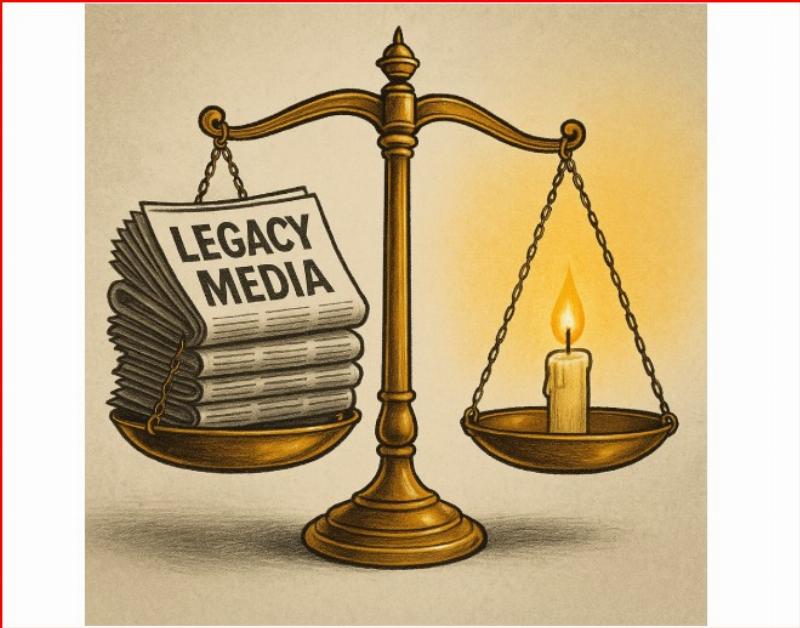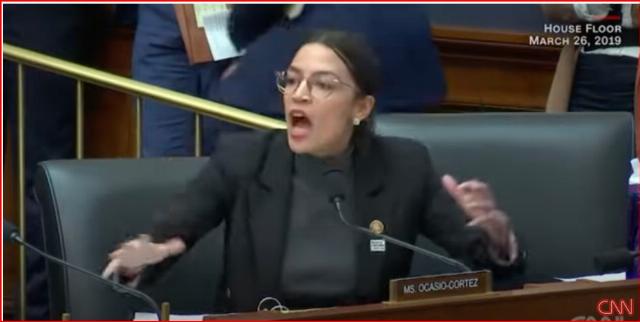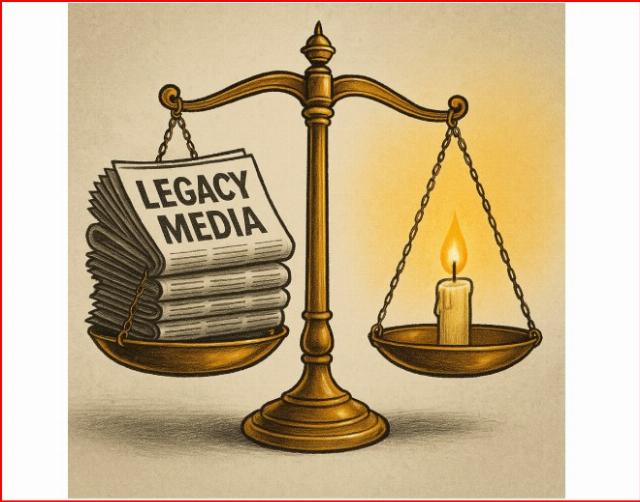


Two recent House votes reveal a troubling trend about the current stance of one of America’s major political parties.
In June, following the assassination of Minnesota legislator Melissa Hortman, a Democrat, the House acted swiftly and unanimously to condemn political violence. The vote was clear and bipartisan, with every member present indicating that killing a public official is beyond partisan bounds.
Weeks later, after the assassination of Charlie Kirk, a resolution to condemn his murder and reject political violence split the House.
Leadership urged support, but many Democrats voted no, abstained, or stayed away. Progressive leaders used the moment to disparage Kirk’s life and work. The split was so sharp that House conservatives carried the measure to the finish line.
That contrast is not a quirk. It is the essence of “situational outrage,” a moral double standard that condemns violence when it strikes their side but excuses, rationalizes, or even cheers violence when the victim is conservative. When condemnation depends on ideology, we stop being a society guided by principle and become a mob driven by narrative.
This episode underscored how much influence the far-left wing now wields over the Democrat party. Party leadership, including Hakeem Jeffries, initially supported the resolution condemning Kirk’s murder. Yet after Rep. Alexandria Ocasio-Cortez denounced it on the House floor, most Democrats followed her lead instead of Jeffries’s.

Screen shot from CNN video, via YouTube
This should alarm Americans. The Democrats once prided themselves on being the party of moderation and civil rights. Today, they are led by demagogues whose guiding principle is not fairness or consistency but raw ideology. If a victim does not advance their agenda, their life and memory are expendable.
AOC’s rise from backbench radical to de facto caucus leader shows how far left the party has lurched in just a few years. Once a noisy minority, the “Squad” and its allies now dominate the caucus. That Democratic leaders could not enforce unity on something as basic as rejecting political violence reveals who really calls the shots.
Democrat’s leftward trajectory isn’t slowing down. Socialist AOC is considering a run for president in 2028, while fellow socialist Zohram Mamdami already has a 20-point lead in the New York City mayoral race, even before Eric Adams recently dropped out.
Worse than the votes themselves were the words that accompanied them. Rep. Ilhan Omar mocked Kirk as “Dr. Frankenstein” whose own “monster shot him through the neck.” Rep. Bennie Thompson declared he could not in good conscience honor Kirk because of his “divisive and disparaging” rhetoric.
This from the same party that constantly hurls slurs at Trump supporters as fascists, Nazis, and white supremacists. Think about that -- a sitting member of Congress justified political assassination on the grounds that he or she disliked the victim’s speech.
This is the core of situational outrage. Violence is condemned when it silences a liberal, but dismissed, or even justified, when the victim is conservative. That acceptance of violence against political opponents is not only un-American, it is profoundly dangerous. If questioning progressive orthodoxy is itself labeled incitement, then free speech is at risk.
The media landscape reinforces this double standard. Pew Research has shown that Democrats are much more likely than Republicans to consume and trust legacy outlets such as CNN, MSNBC, NPR, The New York Times, and the big three broadcast networks. When media frame conservatives as ‘polarizing,’ it helps justify violence.

Image generated by ChatGPT
Take the case of Kilmar Abrego García, whom DHS documents identify as a suspected MS-13 member and human trafficker. In April 2025, The New York Times ran the headline: “Senator Meets With Wrongly Deported Maryland Man In El Salvador.”
The White House mocked the headline, posting a version in red ink: crossing out “wrongly,” replacing “Maryland Man” with “MS-13 Illegal Alien,” and adding “who’s never coming back” with the caption “Fixed it for you, @NYTimes.”
Major outlets focused on due-process issues, while analysts questioned the strength of the evidence behind gang accusations. In contrast, coverage of Charlie Kirk’s assassination highlighted the large memorial, but many also called him “polarizing” and emphasized ideological conflicts instead of his assassination. The difference isn’t a simple percentage split. It’s about which narratives become the default.
Whenever conservatives raise concerns about political violence from the left, progressives respond with studies claiming the real threat comes from the right. One widely cited paper, “What NIJ Research Tells Us About Domestic Terrorism,” was posted on the DOJ’s website earlier this year but was quickly pulled after criticism of its methods.
The report claimed far-right extremists were responsible for the overwhelming majority of ideological homicides since 1990, citing over 500 deaths compared to fewer than 80 for far-left actors.
But closer scrutiny reveals cracks. The study leaned heavily on The Prosecution Project, founded by Michael Loadenthal, an academic who has described his activism in antifa-aligned networks. Critics argue the dataset inflates “right-wing” incidents by lumping in anti-government standoffs and protest violence, while downplaying or misclassifying left-wing extremism.
Events like antifa riots or radical pro-Palestinian attacks were downplayed, while right-wing categories were exaggerated to distort the truth. The Federalist described the database as showing “rabid bias against the right.” Even if the FBI and DHS occasionally cite more right-wing violence historically, that doesn’t justify using flawed data.
That the DOJ pulled the study just days after Kirk’s assassination is telling. Liberals like Jessica Tarlov cite it as proof of right-wing violence, while Greg Gutfeld argues its removal proves it was junk data. Either way, it highlights a dangerous trend: the left justifies situational outrage not only with rhetoric, but with “research” produced by activists disguised as scholars.
Left-wing Axios recently acknowledged, “Halfway through 2025, attacks by far-left extremists outpaced far-right violence.”
Sen. John Fetterman is interestingly the only voice of reason on the left, X-posting,
Unchecked extreme rhetoric, like labels as Hitler or fascist, will foment more extreme outcomes. Political violence is always wrong - no exceptions.
It’s too bad his fellow Democrats want to turn the temperature up, not down.
The Democrat party has not learned from its 2024 defeat. Instead of moderating, it has doubled down on radicalism. Its loudest voices equate dissent with hate and treat political violence as acceptable when directed at conservatives. If Democrats regain the House in 2026, expect more of the same: endless impeachment and imprisonment attempts against President Trump, stonewalling of his agenda, and a steady erosion of norms that once held our system together.
The media won't call this out. They will keep protecting AOC, Omar, and their allies, claiming they are principled progressives instead of extremists.
But ordinary Americans should pay attention. When one party accepts situational outrage, it puts everyone at risk. Political violence, once it starts, is hard to stop. If it's tolerated against conservatives today, it will be tolerated against anyone tomorrow.
The unanimous vote condemning Hortman’s murder and the split response to Kirk’s assassination reveal everything about the modern Democrat party. It is no longer led by moderates but by radicals who justify violence to fit their narrative. That is not moral leadership. It is ideological fanaticism.
Remember the words of President John F Kennedy, “Those who make peaceful revolution impossible, make violent revolution inevitable.” Situational outrage weakens democracy because when violence is seen as partisan, political legitimacy falls apart.
America deserves better. We must oppose political violence in all its forms without exception, and we need to call out those who engage in situational outrage for what they are: enablers of extremism who have forsaken the basic decency that once defined public service.
Brian C. Joondeph, M.D., is a physician and writer. Follow me on Twitter @retinaldoctor, Substack Dr. Brian’s Substack, Truth Social @BrianJoondeph, LinkedIn @Brian Joondeph, and by email brianjoondeph@gmail.com.
